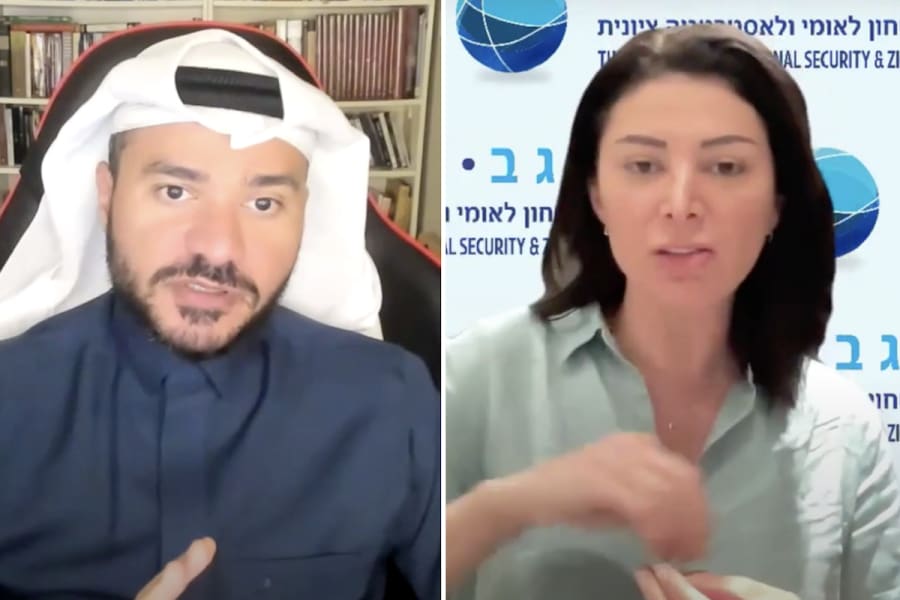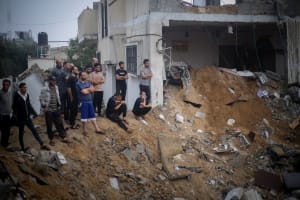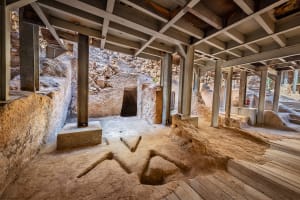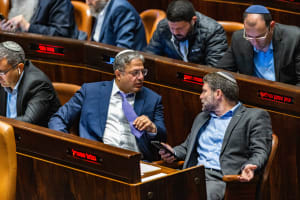To deradicalize the Middle East, education is key – two Arab activists point the way out of radicalism
Minds across the region can be changed through education

Even among the current upheaval across the Middle East, one must keep looking ahead to see how the region can be improved. This was the focal point of a recent webinar organized by the Misgav Institute for National Security and Zionist Strategy.
To that end, former Jerusalem deputy mayor Fleur Hassan-Nahoum hosted a discussion featuring two prominent Arab activists, who, despite different backgrounds, both came to develop an understanding and appreciation for Israel.
Their life experiences provide a potential pathway to lead individuals, and hopefully the entire region, away from radicalism towards a peaceful and prosperous Middle East, in the spirit of the Abraham Accords.
Both activists emphasized that one of the central tools to bring about this change is education.
Loay Alshareef is a linguist and popular online activist from the United Arab Emirates. Growing up in Saudi Arabia, he became an Islamist during his youth and hated "unbelievers," especially Jews and Christians, despite his family being liberal, he said.
“Education and media are the outlets that radicalize people. I remember that in school when we were taught that we should never take Jews and Christians as friends… I took that so seriously, I believed in that,” Alshareef said.
“I thought that this pleases God, to hate Jews and also Christians,” he explained. What altered his life trajectory was a trip to France, where he intended to study French for a time while staying with a local family.
To his surprise, the study program partnered him with a Jewish family.
“All I knew about Judaism was from the adversaries of the Jewish people,” Alshareef explained, which included what he read from Muslim scholars. One of his favorite books at the time was, "The Protocols of the Elders of Zion", which is still widely available in the Arab world.
However, his encounter with the Jewish family in France changed his heart, and his growing knowledge of Jews and Judaism enabled him to “expunge the hate,” as he put it.
“Those who have been in the darkness and overcame it with knowledge are the strongest,” he stressed.
Contrary to his experience as a child, Alshareef noted that today, “the education system in Saudi Arabia is greatly improved. The Crown Prince [Mohammed bin Salman] did a great job in deradicalizing all of the materials and promoting the moderate Islam.”
Unlike Alshareef, Arab activist Rawan Osman grew up in a secular, multicultural environment in Lebanon.
The daughter of parents from Syria and Lebanon, Osman said her family used to celebrate both Christian and Muslim holidays. Despite this, she also inherited a deep hatred of Jews.
Once again, it was a personal encounter with Jews in France that began to change her life. Upon traveling to Strasbourg to study winemaking, she encountered a Jewish person on the street for the first time.
“I had a panic attack,” Osman said. “I panicked because for the first time in my life, I was sharing my space with a Jew.”
“By attending a French-Catholic school, I absorbed a different version of antisemitism – to me, the Jews were the ones who killed baby Jesus.”
Much like Alshareef, Osman said the media had played a large role in forming her opinions about Jewish people by omitting the Israeli narrative and only portraying Israelis as being greedy, bloodthirsty, and only wanting to instigate wars.
After enjoying uncensored access to information in Europe for the first time, “I realized we were brainwashed,” Osman said.
Studying history and Judaism allowed her to see the many similarities between the Lebanese people and Israelis and gave her the tools to create the social media platform, “ArabsAsk,” which aims to provide the same information to Arabic speakers worldwide.
“What changed me can change so many, especially in the Gulf,” Alshareef emphasized. He believes that personal encounters are crucial, and expanding access to exchange programs could create more such opportunities.
He also highlighted that many Israelis and Jews lack understanding of how to use religion and history to explain to Muslims and Arabs their attachment to the land of Israel.
“This answer has to be very clear… if it wasn’t for the Bible – then why Israel,” said Alshareef.
Osman agreed with Alshareef on the importance of personal encounters, education and for media coverage to be improved but noted that political decisions were needed to introduce them in the Arab countries, as has happened for example in Saudi Arabia and the UAE.
Both Osman and Alshareef are optimistic that with diligent work to advance education, the minds of people across the Middle East could eventually be changed.
“We have individual brains and we are held accountable individually… so given the chance, even a random video that some people stumble upon… can create a domino effect,” said Osman. “The process can take 20 years – but it is possible.”

The All Israel News Staff is a team of journalists in Israel.
You might also like to read this:














